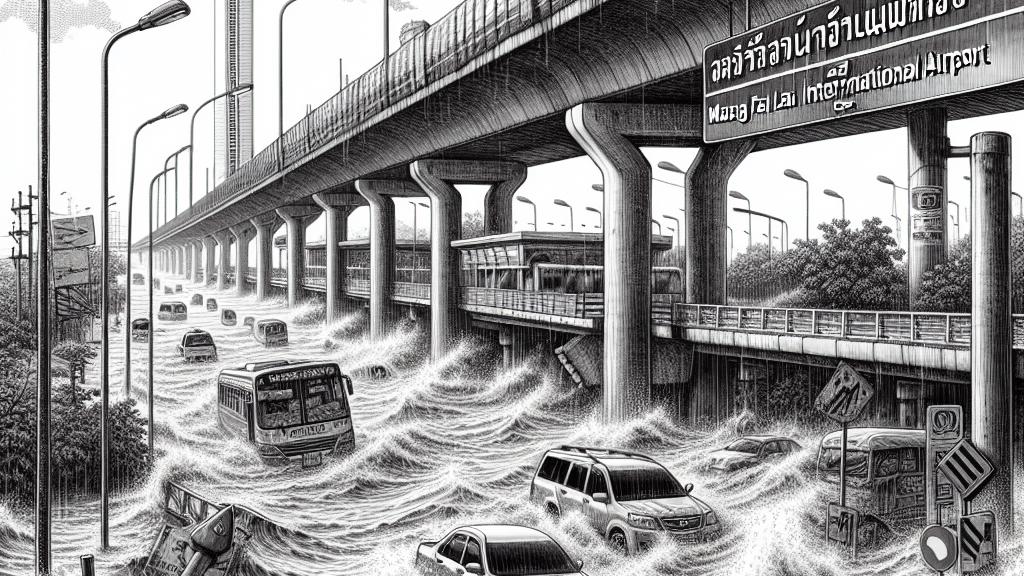Resumption of Flights at Chiang Rai Airport Amidst Flooding Concerns
Overview
- Chiang Rai Airport cautiously resumes limited flights following severe flooding.
- Travelers are urged to allow up to five hours for arrival due to waterlogged roads.
- It's essential to stay updated with airlines for the latest flight information.

Current Situation Unfolding in Chiang Rai
On September 13, 2024, Mae Fah Luang Chiang Rai International Airport reopened for air traffic, albeit on a restricted basis, after heavy flooding had previously resulted in a complete cancellation of all flights. Despite the airport's operational resumption, it is critical for passengers to understand that they may face significantly delayed transit times—potentially up to five hours—due to treacherous flooding conditions on local roads. Compounding this challenge, travelers must navigate through not only waterlogged highways but also unexpected obstacles, making comprehensive planning essential for anyone looking to fly. This situation serves as an unsettling reminder of nature's unpredictable power and reinforces the need for preparedness in navigating transportation amid severe weather.
Airline Operations and Passenger Experiences
The abrupt cancellation of all flights just a day earlier resulted in countless stranded passengers—individuals anxiously waiting as the news changed from optimism to uncertainty. Major airlines like Thai AirAsia and Nok Air are now gradually restoring services, yet travelers must continuously check with their airlines for real-time updates on schedules and potential operational changes. Staying informed not only minimizes potential frustration but also fosters a sense of control in these unpredictable circumstances. Furthermore, those who remain proactive in monitoring their flight status could mean the difference between a chaotic travel experience and a smooth journey home.
Wider Impacts of Flooding on the Local Community and Environment
The ramifications of flooding extend far beyond the inconvenience faced by travelers. Tragically, the consequences can include serious injuries and, in extreme cases, loss of life. Moreover, floodwaters often contain harmful contaminants, presenting grave public health concerns as local residents risk consuming tainted water, which can lead to outbreaks of illnesses that could easily be avoided. Additionally, vital services such as hospitals and schools may close their doors, interrupting the daily routines of countless individuals and families. Environmental repercussions are similarly dire; vital ecosystems suffer as wildlife habitats get destroyed, agricultural fields face erosion, and crops, which represent the lifeblood of farmers, are adversely affected. These interconnected challenges highlight the pressing need for comprehensive flood management strategies and the importance of community support during such events, making it clear that we must work together when faced with the trials of nature.

Loading...